With NFL free agency set to open at 4 p.m. ET Wednesday, here's a close look at each team's salary-cap space through noon ET Monday, including how much each team is investing in its offense, defense and special teams. Teams are ranked from most to least cap space.
ARI | ATL | BAL | BUF | CAR | CHI | CIN | CLE | DAL | DEN | DET | GB | HOU | IND | JAX | KC | LAC | LAR | MIA | MIN | NE | NO | NYG | NYJ | OAK | PHI | PIT | SF | SEA | TB | TEN | WAS
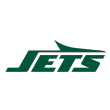 New York Jets
New York Jets
Overall cap space: $90.9 million
Priorities: The Jets must sign a veteran quarterback. Bryce Petty is the only quarterback on the roster with regular-season experience, and his starting record is 1-6. Read more.
Offense: $48,262,203: You get what you pay for. The Jets have one of the lowest offensive payrolls in the league, and they finished 28th in total offense. Most of the money is invested in the line, as three of the top four cap numbers on the team belong to linemen -- Kelvin Beachum ($9.5 million), Brian Winters ($7 million) and James Carpenter ($6.8 million). Unfortunately, the line didn't play up to those numbers last season. Incredibly, the Jets have only $2.6 million devoted to quarterbacks. Some perspective: San Francisco 49ers QB Jimmy Garoppolo will average the same per game, based on his total 2018 compensation.
Defense: $39,614,884: The defense is mainly comprised of players on their first contract, which explains the low number. They dropped a ton of dead weight by releasing defensive end Muhammad Wilkerson, who carried a $20 million cap charge. Actually, his “dead” charge ($9 million) is greater than the cap number of any current player. How crazy is that? If they continue to develop, former high picks Leonard Williams ($5.9 million) and Jamal Adams ($5.1 million) will be in line for big paydays on their second contract.
Special teams: $1,683,949. The Jets don't have a kicker under contract, but they're hoping to re-sign Chandler Catanzaro. -- Rich Cimini
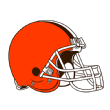 Cleveland Browns
Cleveland Browns
Overall cap space: $83.929 million
Priorities: The trade for Tyrod Taylor puts in pencil the team's goal to have Taylor hold the position for at least a year while a young player learns, but the Browns should not stop there. Read more.
Offense: $93.36 million. The Browns added their two highest-paid players on the team in Friday's whirlwind of trades. Taylor will count for $16 million against the cap ($10 million in salary, $6 million in roster bonus) and receiver Jarvis Landry at this moment counts for $15.982 million because he signed the franchise tag in Miami. That added $31 million to the offensive salary-cap commitments, but it might change. The Browns are talking with Landry about a new contract that would reduce his cap number, and it's possible (though not likely) they would do the same for Taylor. Joe Thomas' cap number is $14.25 million, and if he retires, that also would come off the total. The Browns' cap situation remains good for building a team, but it's also fluid and could get better. Before the trade for Taylor, the Browns had the second-lowest cap cost in the league for quarterbacks. The addition of Taylor and his $16 million makes them the 14th lowest, between the Eagles and the Bengals.
Defense: $62.447 million. The addition of cornerback Damarious Randall did little to change this number, but the trade of Danny Shelton gained the Browns an extra $2 million in cap room. Randall is still on his rookie deal and will cost $1.514 million. The bulk of the defensive spending is on first overall draft pick Myles Garrett ($6.9 million), linebacker Jamie Collins Sr. ($12.15 million), linebacker Christian Kirksey ($6.2 million) and cornerback Jamar Taylor. Collins, Kirksey and Taylor signed new contracts before last season; they account for 43 percent of the defensive cap cost. One player to watch is defensive end Emmanuel Ogbah. He's still playing on a rookie deal that will account for $1.8 million under the cap. If he keeps improving, he should merit a generous extension.
Special teams: $3.8 million. Britton Colquitt ($2.55 million) signed a new contract a year ago, kicker Zane Gonzalez is on a rookie contract and long-snapper Charley Hughlett is on veterans minimum. -- Pat McManamon
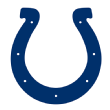 Indianapolis Colts
Indianapolis Colts
Overall cap space: $72,849,359
Priorities: The Colts need to re-sign cornerback Rashaan Melvin. He went from looking like he would be the odd man out to being the Colts' top CB in 2017. Read more.
Offense: $77,155,405. In the not-so-surprising department, the quarterback position carries the most weight for the Colts, and it's the quarterback who hasn't played in a game in more than 14 months leading the way. Andrew Luck (shoulder), who missed the entire 2017 season, carries a $24.4 million cap value next season. He'll be worth every penny if he plays and he's able to return to his Pro Bowl form in 2018. The offensive line, which played a significant factor in giving up an NFL-high 56 sacks last season, takes up 27.8 percent of the team's offensive money.
Defense: $37,803,812. Cornerback is a position where the Colts need to add more players to the roster. They have only four players under contract at that position. Those four players -- Quincy Wilson, Kenny Moore II, Nate Hairston and D.J. White -- account for only 2.47 percent of the team's money. Those four players also have combined to start just 14 games. Pierre Desir and Melvin, the two most experienced players at that position, are about to hit the free-agent market.
Special teams: $11,684,000. The Colts locked up ageless kicker Adam Vinatieri when they re-signed him to a one-year, $3.625 million deal last month. They have a bargain of a deal in punter Rigoberto Sanchez, who had a solid rookie season, averaging 44.8 yards a punt and carrying just a $469,000 cap value next season. The Colts need to find a long-snapper, because Luke Rhodes, who handled the job last season, is a free agent. -- Mike Wells
 Chicago Bears
Chicago Bears
Overall cap space: $67,455,795
Priorities: The Bears, who already placed the $12.971 million transition tag on Kyle Fuller, need to sign the cornerback to a long-term deal. Read more.
Offense: $73,583,948. The Bears have $20,832,533 invested in three members of their starting offensive line -- right guard Kyle Long ($8,848,158), right tackle Bobby Massie ($6,084,375) and left tackle Charles Leno Jr. ($5.9 million), who signed an extension last summer. The club's highest projected 2018 cap number will come off the books when quarterback Mike Glennon ($16 million) is released. Starting quarterback Mitchell Trubisky's cap number is a modest $6,598,281.
Defense: $39,643,275. Defensive tackle Akiem Hicks takes up the most salary-cap space at $9.6 million. Linebacker Danny Trevathan has the second-highest figure at $7.150 million. Veteran cornerback Marcus Cooper Sr. is scheduled to count $5.5 million against Chicago's cap, but Cooper had a disappointing 2017 season and could be released.
Special teams: $1. The Bears do not have a single specialist under contract. Punter Pat O'Donnell is a candidate to return, but the former sixth-round draft pick out of Miami is an unrestricted free agent. -- Jeff Dickerson
 San Francisco 49ers
San Francisco 49ers
Overall cap space: $62,076,713
Priorities: The 49ers should focus on finding weapons for quarterback Jimmy Garoppolo. Read more.
Offense: $94,361,332. Quarterback Jimmy Garoppolo carries an eye-popping $37 million cap hit in 2018, though the Niners front-loaded his deal in order to have more room to re-sign other young players in later years. Elsewhere, only receiver Pierre Garcon ($9.25 million) and left tackle Joe Staley ($7.7 million) have relatively substantial cap numbers. Fullback Kyle Juszczyk's $4.45 million cap figure is still comfortably tops among players at his position.
Defense: $58,425,397. It speaks to the youth of the defense that free safety Jimmie Ward has the biggest cap number among 49ers defenders at $8.526 million. That's only because Ward is currently set to play on the fifth-year option. Otherwise, the Niners have a lot of starters still on rookie contracts, with end Solomon Thomas ($6.4 million) and tackle DeForest Buckner ($4.9 million) accounting for most of the rest of their larger investments on defense.
Special teams: $4,153,550. All three of the 49ers' specialists are free agents after the 2018 season, but if that trio continues building on the momentum of last year, there's no reason to think they won't all get a raise of some sort. Kicker Robbie Gould, in particular, could be in line for a nice bump from his $2.25 million cap number in 2018. -- Nick Wagoner
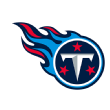 Tennessee Titans
Tennessee Titans
Overall cap space: $58.7 million
Priorities: The Titans, who had one of the NFL's best offensive lines in 2016, took a huge step back in 2017. They need to solidify the position group. Read more.
Offense: $59,005,898. This number will increase once the Titans sign LT Taylor Lewan and QB Marcus Mariota to long-term extensions. As of now, Lewan ($9.3 million) and Mariota ($7.7 million) represent the third- and sixth-highest cap charges on the team, respectively. The Titans currently rank in the top 10 in smallest cap charges for total offense, offensive line and running backs.
Defense: $81,043,240. Four of the five highest Titans cap charges come on defense, leading with DL Jurrell Casey ($14.9 million) and CB Logan Ryan ($10.7 million). The Titans also are allocating a team-high $28.8 million in cap space to the linebacker room, including a combined $17.5 million for Derrick Morgan and Brian Orakpo.
Special teams: $7,718,000. The Titans have among the NFL's top cap charges to their three specialists, but their play on the field has dictated it. Punter Brett Kern and long-snapper Beau Brinkley rank in the top five in highest cap charges at their position and kicker Ryan Succop's new extension likely will place him around top 10 at his position. -- Cameron Wolfe
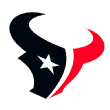 Houston Texans
Houston Texans
Overall cap space: $54.9 million
Priorities: The Texans have three spots open on the offensive line entering next season: left and right tackle and left guard. Read more.
Offense: $58,631,878. The Texans have invested more than $20 million at wide receiver, with most of it ($14 million) part of the five-year, $81 million contract DeAndre Hopkins signed last August. Houston doesn’t have any other offensive player scheduled to make double digits next season, with their highest-paid players being right guard Jeff Allen ($7.4 million) and running back Lamar Miller ($6.75 million).
Defense: $62,399,865. The biggest portion of the Texans' salary on defense goes to its pass-rushers. Three-time NFL Defensive Player of the Year J.J. Watt will make $15 million in 2018, while 2014 No. 1 pick Jadeveon Clowney will make $13.8 million after the Texans picked up his fifth-year option last offseason. Outside linebacker Whitney Mercilus carries a cap hit of $5.96 million, while cornerback Kareem Jackson has the largest cap hit in the secondary at $9 million in 2018.
Special teams: $1,597,500. The Texans have only a kicker and long-snapper under contract, as Shane Lechler, who punted for Houston in 2016 and 2017, is a free agent. The Texans likely will re-sign Lechler to another one-year deal once the new league year begins Wednesday. Kicker Ka'imi Fairbairn has a cap hit of $632,500 and long snapper Jon Weeks will make $965,000. -- Sarah Barshop
 Minnesota Vikings
Minnesota Vikings
Overall cap space: $54,013,040
Priorities: Signing Kirk Cousins should alleviate the problems of quarterback longevity that this team has dealt with in the past decade while also upgrading the position. Read more.
Offense: $55,345,136. The Vikings' only quarterback under contract entering free agency is Kyle Sloter, who carries a $555,000 cap hit. That number will change significantly if they're able to land Cousins or choose to re-sign Case Keenum, Teddy Bridgewater or Sam Bradford. Minnesota's biggest investment is on the offensive line, where nearly $21 million has been allotted, with $11.4 million going toward left tackle Riley Reiff and $4.6 million for Mike Remmers (that's a big cap hit if he stays at guard versus right tackle). At the skill positions, TE Kyle Rudolph is the highest-paid player at $7.675 million, followed by RB Latavius Murray, who will have $5.15 million of his $6.35 million cap hit become guaranteed on March 16 if the Vikings opt not to restructure his deal.
Defense: $76,956,109. Minnesota poured tons of resources into its defense, where the No. 1s (Anthony Barr, Xavier Rhodes and Harrison Smith) at their respective positions are each making north of $10 million this season. The extensions given to Rhodes ($13.4 million), Everson Griffen ($11.6 million) and Linval Joseph ($8.05 million) ahead of last season help the Vikings preserve future cap space, which is why it's likely they'll try to extend Barr ($12.3 million cap hit with his fifth-year option) and Eric Kendricks ($1.6 million) this offseason.
Special teams: $1,715,000. Punter Ryan Quigley carries a $790,000 cap hit, and long-snapper Kevin McDermott is on the hook for $925,000. Kai Forbath is set to hit free agency after a year with the Vikings. -- Courtney Cronin
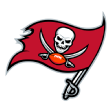 Tampa Bay Buccaneers
Tampa Bay Buccaneers
Overall cap space: $49,359,155
Priorities: The Buccaneers need to focus on signing a high-quality pass-rusher. Read more.
Offense: $79,003,356. Instead of the fifth-year option for wide receiver Mike Evans at $13.26 million, his new deal now carries a cap hit of $18.26 million in the first year. With Evans and DeSean Jackson's $11 million salary, the Bucs will spend roughly $35 million on their receivers in 2018, second most in the league. Cameron Brate's new deal, which carries a cap hit of $7 million in the first year, further pushes the Bucs toward more offensive spending. After picking up the fifth-year option on Jameis Winston, there will be a bigger shift in how much money is allocated toward the offense over the next few years, with Winston expected to earn more than $20 million annually.
Defense: $63,678,677. Six-time Pro Bowl defensive tackle Gerald McCoy carries a $12.75 million cap hit in 2018, 23 percent of the Bucs' defensive cap. Second is linebacker Lavonte David, who carries an $8.75 million cap hit (15.91 percent). While the Bucs are making room to sign a number of offensive players to long-term deals, linebacker Kwon Alexander will need to be accounted for, as he becomes an unrestricted free agent after 2018 and will command a much higher cap hit than his current $2 million.
Special teams: $6,927,841. The biggest cap hit from punter Bryan Anger came in 2017, when it was $4.18 million. That lowers to $3 million in 2018 and 2019 before going back to $3.5 million in 2020 and 2021. Kicker Patrick Murray is an unrestricted free agent, and earned $540,000 in 2017. It’s not a given that he’ll be back, which is why the Bucs went after Dustin Hopkins and are still looking at Chandler Catanzaro, who was on a one-year deal with the New York Jets last year worth $900,000. -- Jenna Laine
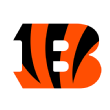 Cincinnati Bengals
Cincinnati Bengals
Overall cap space: $43,166,624
Priorities: Look at the free-agent tackle market, in particular Nate Solder. Read more.
Offense: $72,298,488. Although quarterback Andy Dalton has a modest contract in comparison to many starting quarterbacks around the league, he's still the Bengals' biggest investment on offense, counting $16.3 million against the cap this year. The Bengals also have wide receiver A.J. Green locked up for several years, as he'll count $13.75 million against the cap in 2018. Where the Bengals don't have much invested is the offensive line. Although guard Clint Boling counts $5.45 million against the cap, the Bengals let Andrew Whitworth and Kevin Zeitler walk in free agency last year, instead relying mostly on their draft selections, such as Cedric Ogbuehi and Jake Fisher.
Defense: $77,501,684. The Bengals made a significant investment in their defensive veterans, particularly along the defensive line. Pro Bowl tackle Geno Atkins counts $9.5 million against the cap this season, and defensive end Carlos Dunlap counts $7.3 million against the cap. Both are heading into the final season of their contracts. The number does not include Adam Jones' contract coming off the books, as the Bengals recently decided they would not exercise the team option in his final season, which will make him a free agent. It also doesn't account for the recently signed Chris Baker, who signed a one-year contract worth up to $3 million this week.
Special teams: $2,340,000. The Bengals invested a modest amount in longtime long-snapper Clark Harris, signing him to a one-year extension last fall. Harris counts only $1.07 million against the cap, while punter Kevin Huber will be an unrestricted free agent. It would be a surprise if the Bengals didn't re-sign Huber. Kicker Randy Bullock ($790,000) is under contract for one more season. -- Katherine Terrell
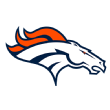 Denver Broncos
Denver Broncos
Overall cap space: $35.945 million
Priorities: The Broncos signed their quarterback, now they need to build around him. Read more.
Offense: $64.514 million. This is going to change, given the Broncos have spent the past two seasons with one of the lowest, or the lowest, cap charge at quarterback, with Trevor Siemian and Paxton Lynch having played on their original rookie deals. Wide receivers Demaryius Thomas ($12.033 million) and Emmanuel Sanders ($10.938 million) carry two of the highest cap charges on the team. If C.J. Anderson is released, as many expect, his $4.5 million cap charge would be off the books and the Broncos would not have a running back or tight end with a cap charge of at least $1 million.
Defense: $86.090 million. The team's big money is still on this side of the ball. Von Miller ($22.5 million), Chris Harris Jr. ($10.367 million), Derek Wolfe ($10.769 million), Bradley Roby ($8.954 million), Brandon Marshall ($7 million) and Darian Stewart ($5.9 million) are all among the team's 10 highest cap figures.
Special teams: $4.15 million. Kicker Brandon McManus leads the way -- $3.5 million cap charge -- with punter Riley Dixon at $650,000. The Broncos need to sign a long-snapper. -- Jeff Legwold
 New Orleans Saints
New Orleans Saints
Overall cap space: $34,145,380
Priorities: The Saints need to re-sign Drew Brees as soon as possible. Read more.
Offense: $72.9 million. For the moment, Drew Brees counts only $6 million against the cap in dead money from his old contract. That should increase by at least $10 million to $20 million when Brees signs a new contract any day now. Obviously, it's not ideal for an NFL team to have one-seventh of its cap devoted to one player. But that's what franchise QBs cost, so teams like the Saints are darned if they do and darned if they don't. ... The Saints also have invested heavily in their offensive line, with left tackle Terron Armstead ($13.5 million), guard Larry Warford ($9 million) and center Max Unger ($8 million) among the top five cap hits on the entire roster. Tight end Coby Fleener ($8 million cap cost) has been a costly free-agent miss. The good news is the Saints are saving mega millions, with young Pro Bowlers such as running back Alvin Kamara and receiver Michael Thomas still on rookie contracts.
Defense: $53.1 million. DE Cameron Jordan has the biggest cap hit on the team ($14.5 million), but that's practically a bargain for the first-team All-Pro. The next most expensive player on the defense is linebacker A.J. Klein ($5.2 million), since the Saints' 2017 defensive revival was aided by young bargains such as rookie defensive backs Marshon Lattimore and Marcus Williams. New safety Kurt Coleman's reported three-year, $18 million deal isn't counting against the cap yet. On the flip side, the Saints might save money from former DT Nick Fairley's contract, pending a grievance.
Special teams: $6.035 million. The Saints have the most expensive punter in the NFL in Thomas Morstead (cap cost of $4.85 million). But he has proved to be worth it while playing at a Pro Bowl level throughout his nine-year career. The Saints are saving money on young kicker Wil Lutz. -- Mike Triplett
 Los Angeles Rams
Los Angeles Rams
Overall cap space: $32,482,605
Priorities: The Rams' free-agent priorities include a makeover on defense after trading Robert Quinn. Read more.
Offense: $64,982,295. The Rams are generally young on offense, which means they're saving some money here. Their four most important skill-position players -- Jared Goff, Todd Gurley II, Robert Woods and Cooper Kupp -- will cost a combined $21.4 million toward the 2018 cap, which isn't bad. Their left tackle, Andrew Whitworth, will cost a team-high $12.7 million, but he's worth it. The Rams were hoping to fit Sammy Watkins in here, but the 24-year-old receiver signed a three-year, $48 million contract with the Chiefs on Tuesday morning.
Defense: $76,052,907. The numbers might change drastically here because of Aaron Donald, who's set to cost $6.9 million toward the 2018 cap but is hoping to sign a market-altering extension this offseason. Lamarcus Joyner, Michael Brockers, Mark Barron and recent addition Aqib Talib will cost a combined $43.3 million this season, which is partly why the Rams found it necessary to free up cap space by trading Alec Ogletree and Robert Quinn.
Special teams: $6,196,554. Punter Johnny Hekker, a four-time first-team All-Pro, is signed through the 2022 season with an average salary of $3.5 million. Kicker Greg Zuerlein, who was on pace to set a scoring record before succumbing to back surgery last season, is signed through 2019 with an average salary of $2.25 million. Their trusted long-snapper, Jake McQuaide, avoided free agency by signing a three-year extension last week; but the terms have yet to be revealed, so his new contract has not been factored in here. -- Alden Gonzalez
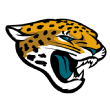 Jacksonville Jaguars
Jacksonville Jaguars
Overall cap space: $32,286,801
Priorities: The Jaguars need to replace wide receiver Allen Robinson. Read more.
Offense: $58,548,683. The Jaguars have the third-lowest total allotted to the offense in the NFL, and the bulk of that is going to five players. QB Blake Bortles has the highest cap hit at $10 million, followed by C Brandon Linder ($9.406 million), WR Allen Hurns ($7 million), RB Leonard Fournette ($6.171 million) and RT Jermey Parnell ($5 million).
Defense: $112,194,309. By contrast, no team in the NFL is spending more money on defense than the Jaguars. That includes a whopping $58,864,277 along the defensive line, which accounts for 52.4 percent of the defensive cap total. The Jaguars are paying the most at defensive tackle ($30,469,675), thanks mainly to huge cap hits by Malik Jackson ($15.5 million) and Marcell Dareus ($10.175 million).
Special teams: $4,460,000. Punter Brad Nortman accounts for more than half the cap number because of his $2.375 million cap hit in 2018. The Jaguars are getting a bargain with kicker Josh Lambo, who made 19 of 20 field goal attempts since the team signed him in mid-October. He's counting just $705,000 against the cap. -- Michael DiRocco
 Washington Redskins
Washington Redskins
Overall cap space: $31,671,667
Priorities: The Redskins need to provide quarterback Alex Smith more targets. They can do so by signing one of the free-agent receivers. Read more.
Offense: $85,429,421. The Redskins reduced their investment at QB with Alex Smith ($17 million) instead of Kirk Cousins ($24 million last season). Compared to the league average, the Redskins' biggest investment remains at tight end with Jordan Reed ($10.1 million) and Vernon Davis ($5.3 million). They remain around 15 percent above the league average along the offensive live with Trent Williams ($13 million), Brandon Scherff ($6.75 million) and Morgan Moses ($5.4 million). They don't have a running back or receiver who will count more than $3.2 million against the cap. That likely will change early in free agency.
Defense: $67,722,559. Two players account for 43.4 percent of their defensive cap: LB Ryan Kerrigan ($12.45 million) and CB Josh Norman ($16.94 million). The rest of the secondary adds up to only $11.9 million. The Redskins' highest-paid linemen are Stacy McGee ($4.8 million) and Terrell McClain ($4.7 million); they did not get enough production from this group. Safety D.J. Swearinger is the next highest cap hit at $4.3 million. Linebacker Preston Smith ($1.8 million) could be in line for an extension this spring as free agency awaits in 2019.
Special teams: $2,817,500. Kicker Dustin Hopkins is a free agent, but punter Tress Way ($1.75 million cap hit) and long-snapper Nick Sundberg ($1.1 million) are signed through 2020. -- John Keim
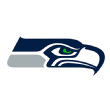 Seattle Seahawks
Seattle Seahawks
Overall cap space: $31.22 million
Priorities: Don't overpay for Sheldon Richardson, Jimmy Graham and Paul Richardson. Read more.
Offense: $67 million. While Russell Wilson carries a hefty $24.34 million cap charge for 2018, his four-year, $87.6 million extension from 2015 has become a bargain relative to more recent quarterback deals. The notion that the Seahawks refuse to spend money on their offensive line has been outdated since they signed center Justin Britt ($6.12 million cap charge for 2018) to an extension last summer and then acquired left tackle Duane Brown ($9.75 million) in a midseason trade. Seattle also gave left guard Luke Joeckel $7 million guaranteed last season, but he's an unrestricted free agent after playing out a one-year deal.
Defense: $71.4 million. The Seahawks just cleared around $18 million in cap space by releasing cornerbacks Richard Sherman ($11 million) and Jeremy Lane ($4.75 million) and trading defensive lineman Michael Bennett ($2.2 million). But free safety Earl Thomas ($10.4 million) and injured strong safety Kam Chancellor ($9.58 million) still make up one of the NFL's most expensive safety tandems, based on their 2018 cap charges.
Special teams: $3.905 million. That figure will change when Seattle adds a kicker to compete with Jason Myers ($705,000) and signs a long-snapper, whether it's incumbent Tyler Ott (an exclusive-rights free agent) or someone else. Punter Jon Ryan ($3.2 million) has a decent-sized cap figure for 2018, which would make him vulnerable if Seattle decides to purge some of its higher-priced veterans. -- Brady Henderson
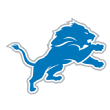 Detroit Lions
Detroit Lions
Overall cap space: $28,010,997
Priorities: The Lions need help on interior defensive line. Read more.
Offense: $88,956,374. This number is as high as it is because of quarterback Matthew Stafford, who was the highest-paid player in the league until last month. Other than Stafford, the biggest areas of investment for Detroit have been on the offensive line, where T.J. Lang has a cap hit of $10,869,791, and at wide receiver, where Golden Tate has a cap number of $9,351,250 and Marvin Jones Jr. has an $8.6 million hit. Tate, though, is in the final year of his deal and could be extended.
Defense: $53,854,333. Ezekiel Ansah and his $17.143 million franchise tag cap hit take up a good chunk of the space, and otherwise, a good portion of the money is in the secondary, where four players have cap hits of more than $1 million, led by Darius Slay ($6,126,269) and Glover Quin ($6,516,666). Both, though, are in the middle of their deals, and they are two of Detroit's top three defenders. Defense is an area where the Lions can afford to spend in free agency.
Special teams: $6.125 million. Detroit has its kicker and punter locked up for the foreseeable future, with Matt Prater's $3.2 million hit and Sam Martin's $2.925 million hit. The Lions need a long-snapper, and if Don Muhlbach returns, it'll likely be on a veterans minimum deal or something close. But this is one of the best overall units in the game. -- Michael Rothstein
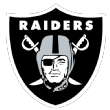 Oakland Raiders
Oakland Raiders
Overall cap space: $25,062,769
Priorities: Re-sign four-time first-team All-Pro inside linebacker NaVorro Bowman. Read more.
Offense: $112,467,489. The Raiders have gone in big with their quarterback (Derek Carr's extension has his cap number for 2018 at a massive $25 million) and on the offensive line. In fact, the most expensive O-line in league history has a combined cap value of more than $40.08 million, with left guard Kelechi Osemele and right guard Gabe Jackson both having cap numbers of $10.5 million. Put in perspective, Donald Penn, Osemele, Rodney Hudson and Jackson all have higher cap hits than “skill” players such as running back Marshawn Lynch ($5.95 million) and receivers Michael Crabtree ($7.68 million) and Amari Cooper ($7.21 million).
Defense: $40,871,612. Khalil Mack, a former NFL Defensive Player of the Year, is due a big extension this offseason as he enters 2018 with a cap number of more than $13.84 million. The second highest? Try cornerback Sean Smith's $8.5 million cap hit, making him a prime cap-casualty candidate. Then there is outside linebacker Bruce Irvin and his $8.25 million cap number. Only strong safety Karl Joseph ($3.24 million) and cornerback Gareon Conley ($2.37 million), Oakland's past two first-round draft picks, have cap numbers higher than $2 million on defense for 2018.
Special teams: $3,530,000. The Raiders chose not to bring back Sebastian Janikowski, who carried a cap number of more than $3.36 million on injured reserve last year after taking a pay cut. Longtime long-snapper Jon Condo, whose number was a relatively meager $695,000, was also told he would not be re-signed. That leaves punter Marquette King ($3.05 million), kicker Giorgio Tavecchio ($465,000 last season/unknown this season) and long-snapper Andrew East ($480,000). -- Paul Gutierrez
 New England Patriots
New England Patriots
Overall cap space: $24.6 million
Priorities: New England needs to ensure Tom Brady's blind side is in good hands, which means it needs to make a competitive effort to re-signing left tackle Nate Solder. Read more.
Offense: $81,405,771. The Patriots have a $22 million salary-cap charge for Brady, which increased from the QB's $14 million last season. This is usually the time (with two years remaining on his deal) the Patriots and Brady have struck an extension to lower his cap hit, although it's unclear if that will happen this year. With 17 percent of the team's offensive cap spent on the offensive line (led by right tackle Marcus Cannon's $5.76 million hit), that total would grow significantly if the team can re-sign Solder, who is their top free agent and their top priority. That's not a bad place to have the majority of resources invested: The reigning NFL MVP at quarterback and the players who protect him.
Defense: $65,889,147. Cornerback Stephon Gilmore ($12.5 million) and safety Devin McCourty ($11.9 million) carry the highest cap charges on defense, which highlights how the Patriots viewed Gilmore as a blue-chip player when they aggressively pursued him at the start of free agency last year. Linebacker Dont'a Hightower ($8.5 million) is next, and that's one reason the team needs him to return to a high level of play after missing half of the 2017 season with a torn pectoral muscle.
Special teams: $7,730,000. Kicker Stephen Gostkowski ($5 million) accounts for the majority of space among the team's three specialists. The $7.7 million number doesn't account for the handful of core special-teams players who don't have a major role on offense or defense, as the Patriots traditionally devote anywhere from three to six roster spots to them. -- Mike Reiss
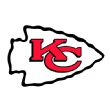 Kansas City Chiefs
Kansas City Chiefs
Overall cap space: $23.3 million
Priorities: The Chiefs need to upgrade the secondary after trading Marcus Peters to the Rams. Read more.
Offense: $67,119,814. This number does not include the contract for quarterback Alex Smith, whose trade to Washington will become official on Wednesday. At that point, the Chiefs would have one of the lowest salary-cap figures at quarterback, where only Patrick Mahomes is under contract with a cap cost of about $3.7 million. But the Chiefs are among the top-10 spenders on the O-line (almost $34 million) and tight end ($14.1 million).
Defense: $79,352,417. This number does not include the contract of cornerback Peters, whose trade to the Rams will become official on Wednesday. The Chiefs have more than $33 million against the salary cap invested in linebacker Justin Houston ($20.6 million) and safety Eric Berry ($13 million) alone.
Special teams: $1,385,000. The Chiefs spent more than $6 million last season against the cap for punter Dustin Colquitt, kicker Harrison Butker and long-snapper James Winchester. Most of that was spent on Colquitt, who doesn't have a contract for 2018. -- Adam Teicher
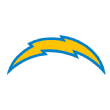 Los Angeles Chargers
Los Angeles Chargers
Overall cap space: $22.8 million
Priorities: The Chargers should re-sign safety Tre Boston, a known commodity who was productive and showed durability in coordinator Gus Bradley’s scheme. Read more.
Offense: $80,729, 903. The Chargers secured left tackle Russell Okung last offseason for $23 million in guaranteed money. They have a top-10 quarterback in Philip Rivers locked up for two more years at relative bargain of $15.5 million annually. Keenan Allen has blossomed into a No. 1 receiver and still has three years remaining on a four-year, $45 million contract extension. The Chargers' next task will be locking up running back Melvin Gordon. The Chargers likely will pick up the fifth-year option of Gordon's rookie contract, projected at $9.6 million for the 2019 season.
Defense: $70,072,846. Defensive end Melvin Ingram is the top money earner on defense at $11.25 million. Defensive tackle Corey Liuget is set to earn $8 million in total compensation if he's on the Week 1 roster. Cornerback Casey Hayward, who signed a three-year, $36 million extension with $20 million in guarantees, will earn $4.25 million in the final year of his current deal.
Special teams: $2,848,456. The Chargers have young kickers on the roster in Nick Rose and Roberto Aguayo but mighty look to add a veteran in free agency. Veteran long-snapper Mike Windt also has some competition in Anthony Kukwa, who signed a reserve/future contract in January to join the Chargers. -- Eric D. Williams
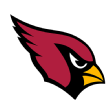 Arizona Cardinals
Arizona Cardinals
Overall cap space: $22 million
Priorities: It doesn't have to be Kirk Cousins, but the Cardinals do need to sign a quarterback who can start or be a mentor to a rookie, if they decide to draft one of the top-tier guys. Read more.
Offense: $62,807,681. The Cardinals have $27.7 million invested in their offensive line, with $19.8 million tied up in left guard Mike Iupati and right tackle Jared Veldheer combined, and another $15.8 million tied up in star wideout Larry Fitzgerald. Their next-highest receiver is J.J. Nelson with a cap number of $1.95 million. David Johnson eats up more than $2 million in cap space, but the Cardinals have no cap space tied up in quarterbacks.
Defense: $81,190,553. The Cardinals have done a good job of controlling their cap hits on their defensive front. However, the cap numbers start ballooning the further you get from the line of scrimmage. Outside linebacker Chandler Jones, who signed a five-year extension last year, has a cap hit of $15.5 million. Cornerback Patrick Peterson's cap number is $14.96 million. But it's safety Tyrann Mathieu's cap hit of $14.1 million that looms large this offseason, as he'll be guaranteed $18.75 million by the third day of the league year.
Special teams: $4,662,500. Kicker Phil Dawson has a $3.5 million cap hit in 2018, while punter Andy Lee comes in at $2.36 million. -- Josh Weinfuss
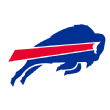 Buffalo Bills
Buffalo Bills
Overall cap space: $21.461 million
Priorities: With the Bills' signing of Vontae Davis most likely taking them out of the running to re-sign starting cornerback E.J. Gaines, the most important remaining free agent for Buffalo is middle linebacker Preston Brown. Read more.
Offense: $100,495,088. Seven of the Bills' eight highest 2018 salary-cap hits are offensive players. The highest, $18.08 million for quarterback Tyrod Taylor, will be reduced to $7.64 million when Taylor's trade to the Browns becomes official on Wednesday. Buffalo also is moving on from oft-injured left tackle Cordy Glenn and his $14.45 million cap hit, as he is being traded to the Bengals. Otherwise, second-year general manger Brandon Beane will probably ride out the contracts he inherited for LeSean McCoy ($8.95 million in 2018), tight end Charles Clay ($9 million) and guard Richie Incognito ($7.6 million). There also is the unresolved issue of center Eric Wood, whom Beane extended last August through 2019, only to have Wood's career end when a neck injury was discovered during his postseason physical. Including dead money from his 2016 restructure, Wood would count about $12 million against the Bills' salary cap if he is released or placed on reserve/retired. Beane said at the combine the issue of Wood's contract and whether the Bills could recoup some money because of the injury was on the “back burner.”
Defense: $42,509,252. The Bills are getting good value from two of their free-agent signings from last offseason in safeties Micah Hyde ($6.8 million
































